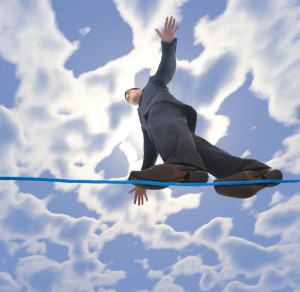 This is third in a three-part series on risk-taking in the kingdom of God. I started with When Safe Sucks, followed that yesterday with Cautious Christianity v. Kingdom Christianity. I end here with some lessons I’ve learned in Las Vegas.
This is third in a three-part series on risk-taking in the kingdom of God. I started with When Safe Sucks, followed that yesterday with Cautious Christianity v. Kingdom Christianity. I end here with some lessons I’ve learned in Las Vegas.
I love Las Vegas for a lot of reasons (but not for the prostitution and girly shows). One of those reasons is Blackjack.
I stay away from the other games because I am smart enough to know you don’t build an $800 million hotel by just cooking a good steak.
Blackjack is different though. If you learn to play according to basic strategy, you play at only about a 1% disadvantage to the house. If you learn to count cards, you can play at anywhere from .05 to 1% advantage over the house.
I began playing years ago and over the years have learned to count cards. Don’t get too excited though because to make money, real money, counting cards you need to play on teams, and that’s the sort of thing that gets you a date in the back room with Nunzio. I just love to play, and by playing well and counting cards hopefully win a little money in the process.
One of the most important skills in basic Blackjack strategy is doubling down, which means doubling your bet after the dealer deals you two cards but before you’ve seen both of the dealer’s cards. To pull up to the nearly even odds Blackjack can offer, you have to know when to double down and be willing to do so, otherwise you might as well be over at the slot machines throwing your money away and helping them build the next billion dollar hotel.
Here is where all this is going. The Bible provides principles by which to live our lives, basic strategy if you will, and we can plod along making reasonable, cautious decisions about our careers, callings, finances and futures, but there will come times when the Lord calls us to double down, to take a risk.
The Bible says, “My righteous one shall live by faith, and if he shrinks back, My soul has no pleasure in Him.” (Heb. 10:38). That means if the Lord calls you to take a risk and you chicken out, He’ll not be happy with you, and you may miss your destiny.
So, know when to double down, and when the time comes, do it. GS



